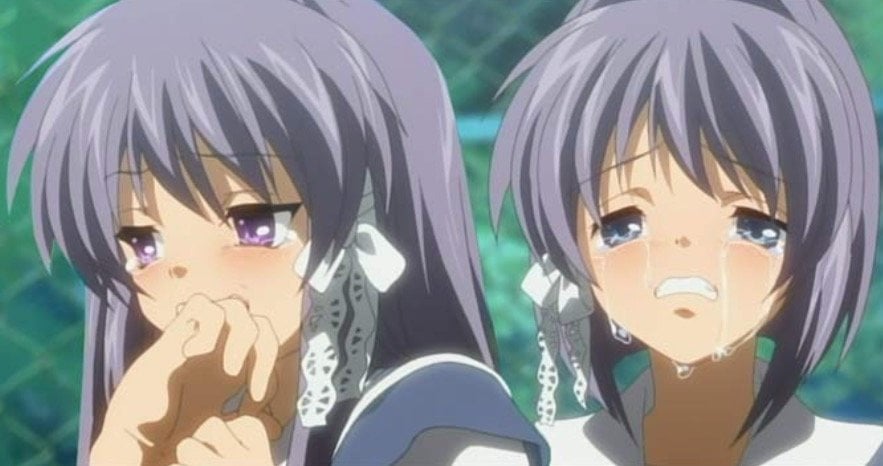While it’s fun to experience Japan through anime, I wonder how often some of the more subtle cultural nuances are difficult for viewers to pick up on. In the popular anime Clannad, there are two twins, Kyou and Ryou Fujibayashi. Although they were born just minutes apart, the oneesan (older sister) Kyou is very protective of her imoto (younger sister) Ryou, and tries to get the main character Tomoya interested in her. It’s common for high school kids to call each other by their last names in Japan, but when Kyou tells Tomoya, “Since both my sister and I are ‘Fujibayashi,’ it must be confusing, so you can call me Kyou,” she basically lets the audience know that it’s she who’s interested in Tomoya, ready to leap-frog over her sister by getting on a first-name basis with him, which implies a special closeness. The mechanics of polite Japanese are also difficult to express properly in English. When Kyon goes back in time to meet a younger version of Haruhi, he’s not surprised when she speaks to him in a commanding manner despite being three years younger than him at the time. Similarly, there’s a scene in Touch where the rough coach Eijiro Kashiwaba berates two senpai who had betrayed him many years ago. Although he’s filled with anger, he never drops his polite tone when addressing his former upperclassmen, something that would be difficult to conceive of in English. The pinnacle of moe for me, the scene when Kyou and Ryou realize they’ve not been chosen.
The pinnacle of moe for me, the scene when Kyou and Ryou realize they’ve not been chosen.
Don’t Call it Anime! Why Fans Really Hate Seedance 2.0
Last week, certain corners of Twitter were exploding with commentary on the new Seedance 2.0 model, which can generate animated...














